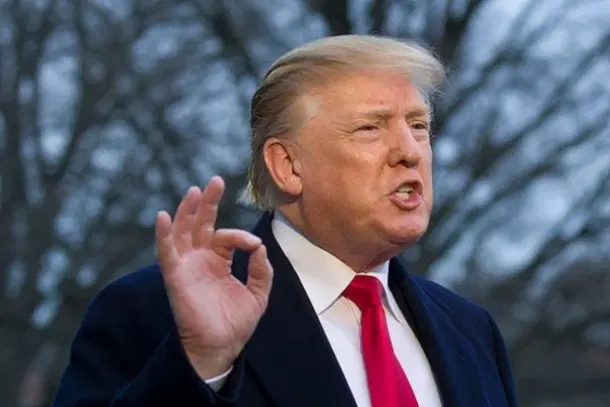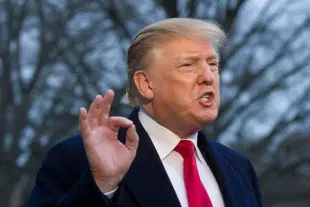News Brief
Trump Tries To Mock India Yet Again, This Time Through 'Counterterrorism Dialogue' With Pakistan
Swarajya Staff
Aug 13, 2025, 08:29 AM | Updated 08:29 AM IST
Save & read from anywhere!
Bookmark stories for easy access on any device or the Swarajya app.


The United States has moved to further embrace Pakistan, effectively ending years of Islamabad’s diplomatic isolation in Washington DC.
The latest in this shift is the US–Pakistan Counterterrorism Dialogue, held in Islamabad on August 12, which reaffirmed both sides’ “shared commitment to combating terrorism in all its forms” and praised Pakistan’s actions against the Balochistan Liberation Army (BLA), ISIS-Khorasan, and Tehreek-e-Taliban Pakistan.
For India, the timing is alarming. Just days earlier in Tampa, Florida, Pakistan Army Chief General Asim Munir openly engaged in nuclear sabre-rattling, threatening India with annihilation and vowing to take half the world down with it in the process. His remarks, delivered from US soil, drew condemnation in New Delhi but no rebuke from Washington.
Instead of criticism, the US doubled down on its engagement. The joint statement applauded Pakistan’s “continued successes” against terrorist entities and offered condolences for casualties in recent months. It singled out the BLA and other Baloch militant groups, a long-standing Pakistani demand, as priority targets.
Instead, the US doubled down on its engagement. The joint statement applauded Pakistan’s “continued successes” against terrorist entities and offered condolences for casualties in recent months. It singled out the BLA and other Baloch militant groups, a long-standing Pakistani demand, as priority targets.
This was accompanied by the US State Department’s designation of additional Baloch outfits as terrorist organisations. The timing was so conspicuous that it appeared, perhaps not unwittingly, that the Trump administration was rewarding Munir for his nuclear threat to India.
In Pakistan, such designations are routinely used to delegitimise nationalist dissent in Balochistan, where human rights groups have documented decades of repression. For New Delhi, they signal a political gift to Islamabad at India’s expense.
The move marks a clear break from the years when Washington kept Pakistan at arm’s length over its Taliban links and support for cross-border militancy. Under Donald Trump’s renewed outreach, Pakistan’s diplomatic exile is ending.
Analysts say the thaw is not just about counterterrorism optics. It comes amid Washington’s growing irritation with India’s strategic defiance, from its oil trade with Russia to its refusal to concede to US demands on trade





